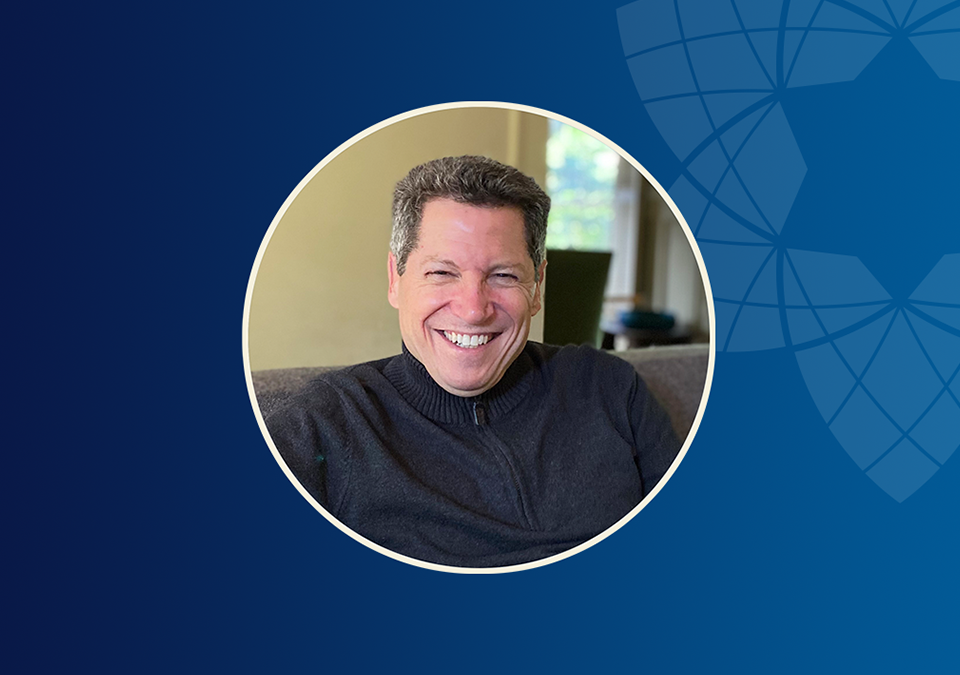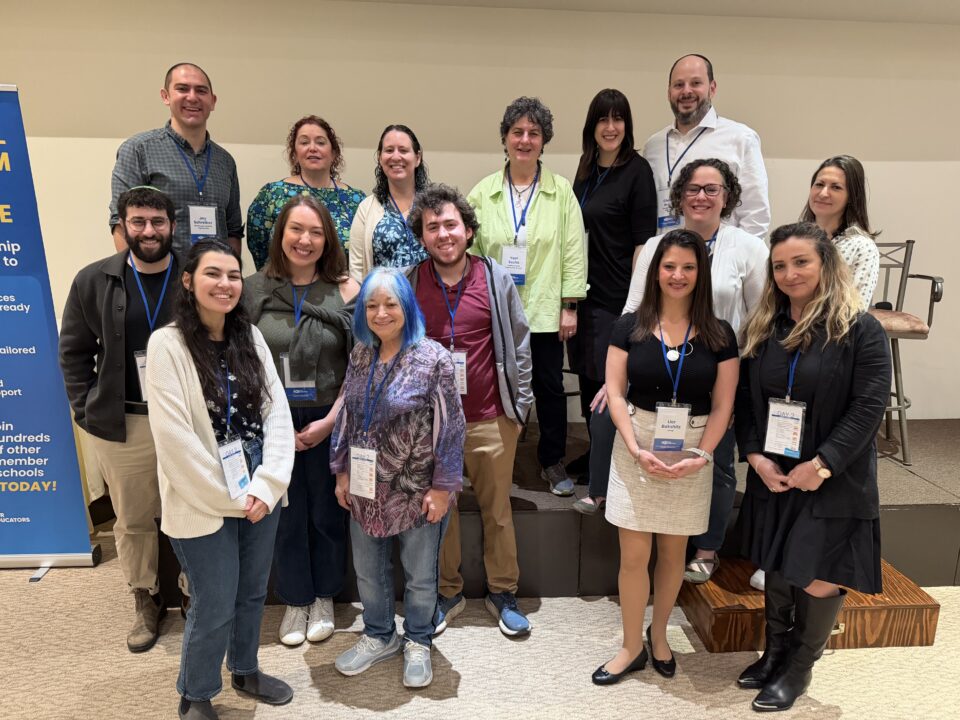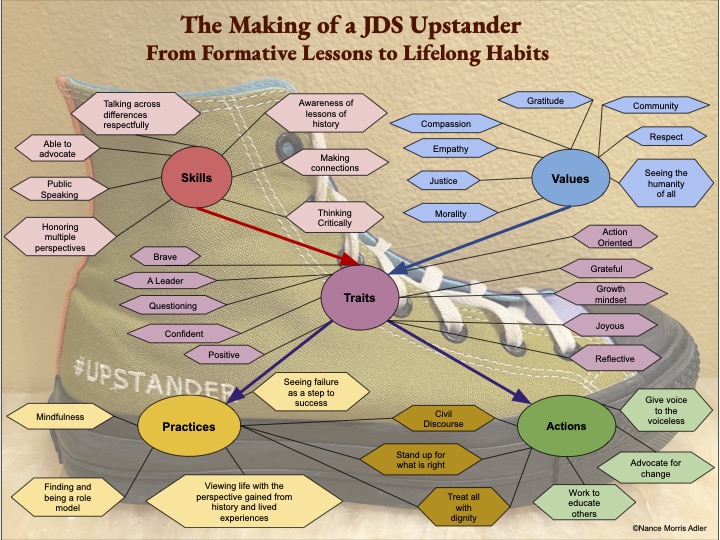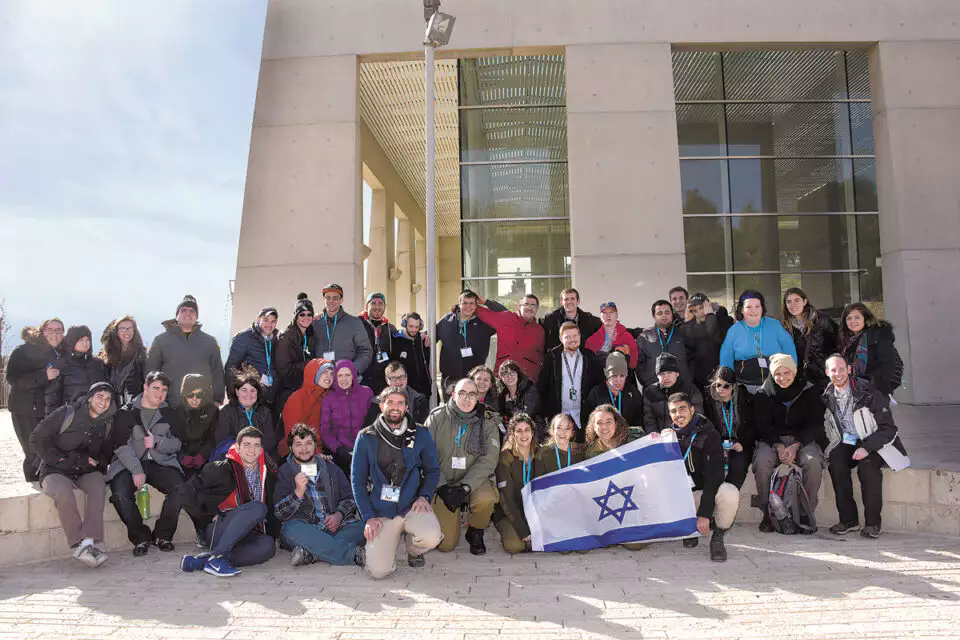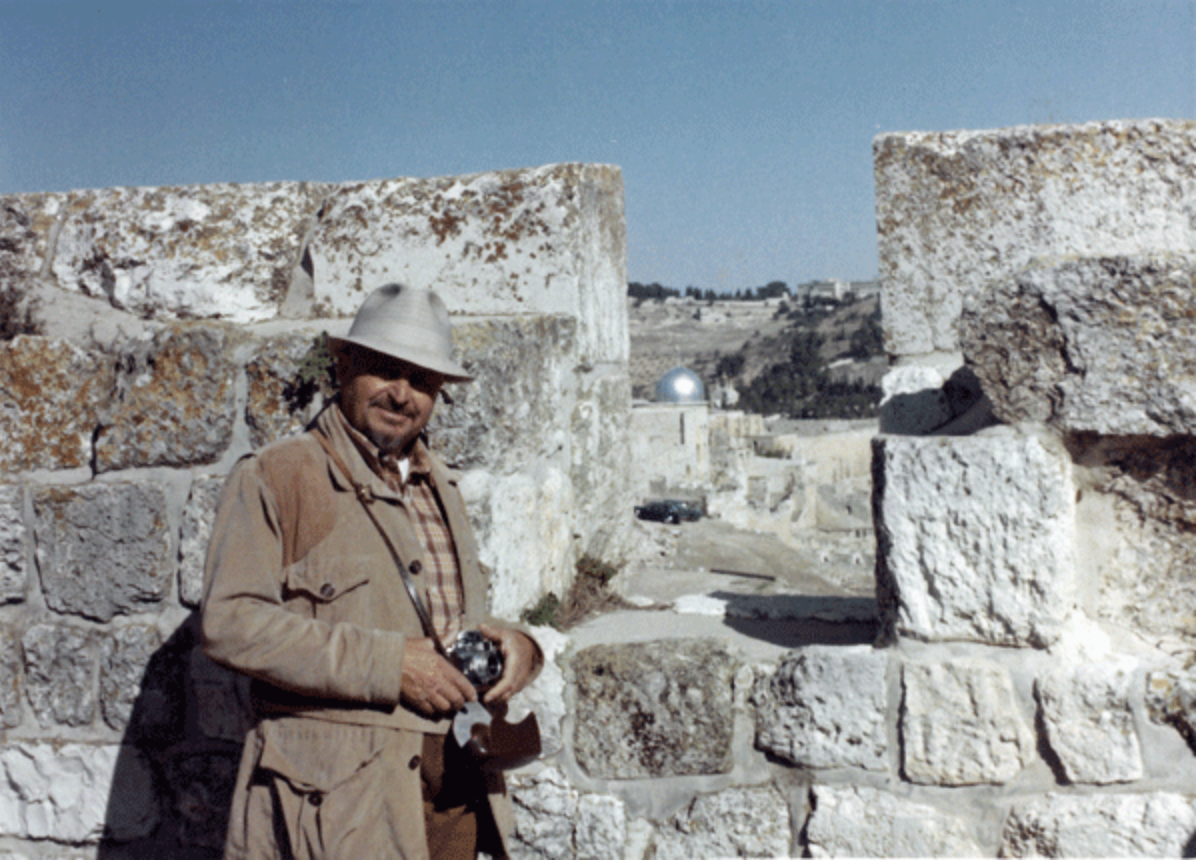
Washington State Jewish Historical Society and Samis Foundation Launch New Digital Exhibit and Announce Publication of Sam Israel’s Biography
January 11, 2022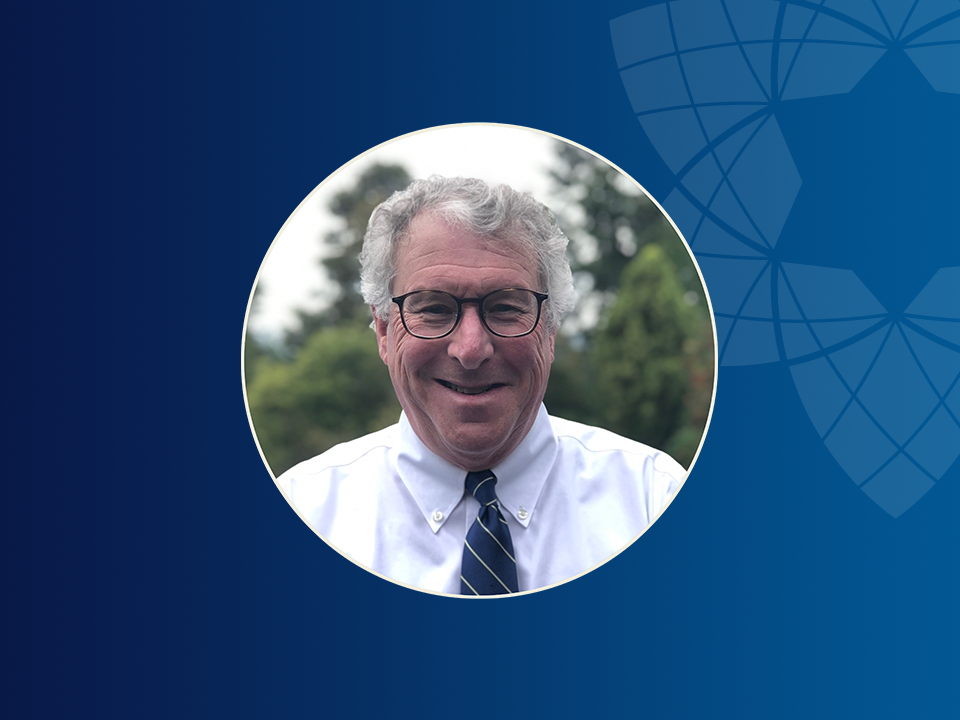
Samis Trustee Spotlight: Greg Roer
March 3, 2022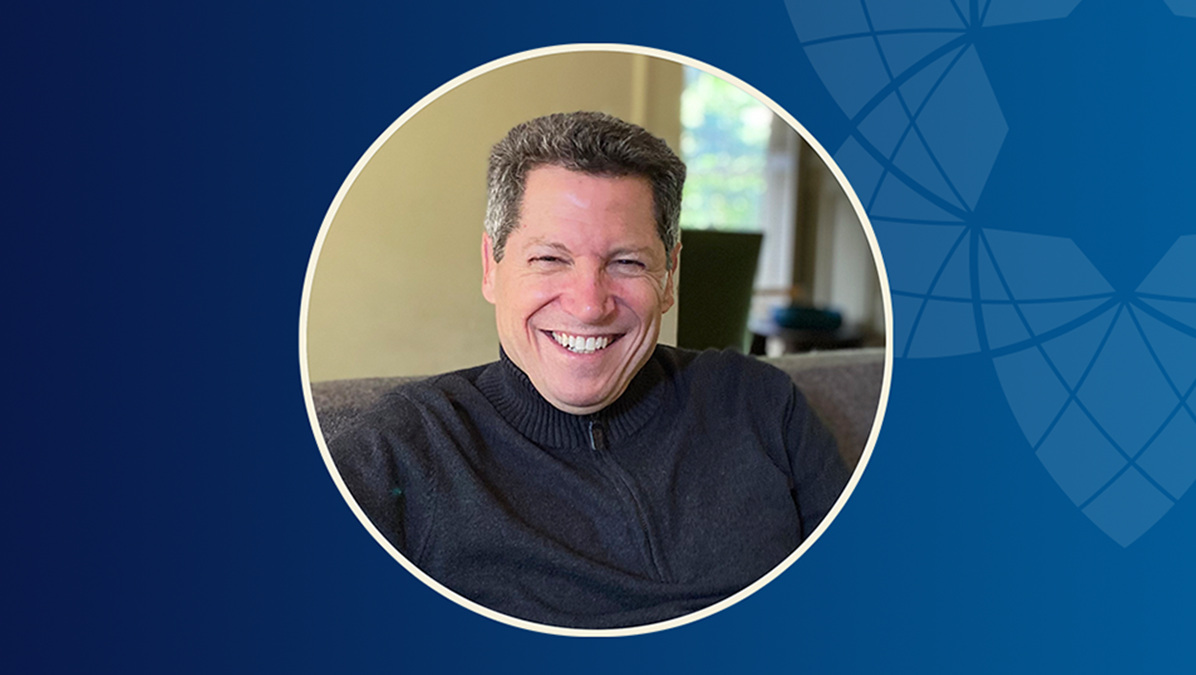
A conversation with Sam Israel’s great-nephew, avid investor, and passionate Jewish community member, Dana Behar
Years of Service: 9
Committee (s): Endowment/Investment Committee, Grants Committee
Did you have a personal connection to Sam Israel before joining the board? What is your connection, if any?
I am Sam Israel’s great nephew. My grandfather, David Israel, was his oldest brother. I met Sam when I first went out to Soap Lake, when I was about 13 or 14, and continued going there most summers until I was in my 20s. Over the course of the years, I probably spent over a month out there and certainly got to know him a bit. Having heard so much about him growing up and about his eccentricities, I was always curious to meet him. As I started to spend time with him, I became even more interested in trying to understand him better as a person.
Please describe your most memorable interaction with Sam.
My most memorable interactions are really quirky things. He had an unusual lifestyle. He lived modestly and it seemed to suit him, as he appeared to enjoy it greatly. He also loved to be in nature, loved the outdoors, and took great pleasure his small-scale farming and ranching. He was a uniquely independent thinker and had his own ideas about most everything. Typically, those ideas did not conform to what most of us understand, so I greatly admired how independent his thinking was. As a very unusual character, I also admired his commitment to live his life on his own terms regardless of what anyone else might think and regardless of where that might take him. That takes a lot of imagination and courage, which is what I think was so exceptional about him. Sam might have seemed odd, but it was only because he had both the self-awareness and the courage to carve out his own unique path in life. He was the quintessential original thinker.
What’s the greatest story you ever heard about Sam?
Well, I have a few firsthand experiences with Sam. The first time I showed up to the farm gate at Soap Lake, he met me with a shotgun. I had to explain to him who I was, and it was some time before he actually let me in. On my first visit, I went up there with David Azose’s younger brother Jay. Once Sam let us in, he had us sleep on some bunk beds outside. He was looking for mattresses for us, and I saw how he had all these structures around the farm in which he stored all kinds of things. He had what seemed like an acre of just concrete tubes, old three-wheel mail trucks, and a whole mobile home full of nails and things. I asked him “Why do you have all this stuff?” and he said “Well, the price was right, and if you need it, it’s there.” He would just accumulate all kinds of strange stuff. He got really upset when he was looking for the mattresses because he remembered he had bought 18 at an auction and he could only find 17.
He had a pack of dogs that he lived with that were all strays and he called them all Mariuch, which means a little Marie in Italian. He called them Mariuch both individually and collectively. If there is a full moon he would sometimes get up and howl with his dogs at the moon. He was an avid photographer. All the local banks wanted to get his business. I remember going to the local banks in Soap Lake and Ephrata and they would have exhibits of Sam’s photographs. When we drove around in his truck, he would stop the truck, point at something and have me pick it up. I would ride in the bed of the truck, pick up a brick or a piece of wood, and we would go back to the ranch and put the brick in the brick pile and the wood in the woodpile. We would just pick up random things from everywhere.
He didn’t like the establishment, so he had very negative things to say about most institutions. I think it was because he was a very practically minded person. He didn’t like what he saw as waste, bureaucracy, or elitism being practiced. Those are the things that I remember that still stand out to me.
What was your path to joining the Samis Board?
As someone who was very active in real estate investing and development, for years I observed the actions the board was taking in terms of investing in real estate and thought that I might be able to help. I actively sought out the role. Quite frankly, I wish I had had the chance to get involved sooner, but I am just grateful to have been able to participate and hopefully to have been of some help.
What is the most meaningful story, event, or experience you can recall related to your service on the Samis Board?
The most meaningful aspect has probably been the travel. The trip to Israel with all the other board members is an amazing experience because we get to see firsthand the impact we’re having there. Adam Hasson, our Real Estate Director, is my cousin, so I also really enjoyed, early on, going to Soap Lake with him and seeing all the investments and properties out in Grant County – it’s just fascinating.
Some of the conversations and discussions that we have on the Board are really fascinating. All the trustees care very much about the institution and the conversations, especially the ones that are difficult, are often really amazing. I’ve also enjoyed trying to get to know the other board members as they are some of the most extraordinary people I have ever met and I don’t think I would have gotten to know them otherwise. It has really been a fantastic experience for me.
How does your personal Jewish journey relate to the Samis mission?
I grew up in the Sephardic Community of Seward Park and I was in raised in a traditional home where we had a traditional view of Judaism and were observant of most things. Growing up I went to Ezra Bessaroth on Friday night, Shabbat morning and Shabbat evening and often did a Sunday morning minyan.
I went to Seattle Hebrew Academy for day school first through ninth grade. I had an Israel experience when I was 20 and went to Sephardic Adventure Camp, as a camper and later as a counselor, for 7 to 8 years. I also taught at Sunday school, with four or five different congregations, Reform, Conservative, and Orthodox. When I was 20, I left the University of Washington for a year to go on a new program in Israel at the Sephardic Education Center. The first two people to go from Seattle, were me and Sam Mezistrano. I ended up staying in Israel for the better part of a year and went to Sephardic Yeshiva, to a Kibbutz-Ulpan, and did some independent travel. While traveling I was able to meet some relatives who came to Israel from Lebanon. It was an amazing life changing experience for me. Back in Seattle, I restarted the Sephardic Religious School, and I was the President of it for about a decade. All those experiences were really meaningful for me.
I have a lot of Jewish friends and it’s always curious to me trying to understand for those that don’t continue their Judaism, why, and for those that do, why. Many kids who don’t get a day school education still seem to have a very strongly Jewish identity and I continue to be interested in why. What’s the secret recipe? I think a lot of it is really what happens in the home. If they don’t go to day school, but their parents take Judaism seriously and observe holidays and other things, it seems to work. But for that to happen, the parents have to know enough to do it and it has to be meaningful for them as well, thus the parents probably need to have some Jewish education.
Chabad does a great job, and other organizations do as well, in finding those “lost sheep” who don’t have that strong Jewish background. For someone to take advantage of what Samis can offer, such as a subsidized or free Israel experience or summer camp, they have to care enough to want to do those things. If they get to the point where they don’t even want to participate, even if the programs are free, then they’re probably lost. So, I think we have to find those people before that happens. Ultimately, if the parents are not Jewishly supportive in the home it’s harder and then they are likely just one generation away from being lost.
I think, to really support Jewish education and continuity, we might want to create our own Washington State based Wexner-like program to educate youth and to create future leaders. For this to be successful, we would probably also need to include some financial incentive (e.g. scholarship funds), make sure the program offers a valuable credential, make sure it is interesting and fun, and develop a marketing campaign to find young people and promote participation. Such a program, could provide a strong Jewish education and identity for those young people who don’t attend day schools.
Which area of the Foundation’s philanthropy most resonates with you and why?
Sam’s interest was first and foremost the continuity of the Jewish people. In Israel we are succeeding in the sense that Israel has been able to bring in Jewish communities from all over the world. Now, the truth is that the of majority of Jews live either in the United States or Israel. Israel is certainly thriving and growing, and I think that is positive. But in the United States we are not really succeeding in terms of Jewish continuity.
Day schools are really important, but they serve less than 5% of the Jewish kids in Washington State. I think what we need to focus on are the other 95%. We know that summer camp and Israel experiences are impactful, important, and relatively inexpensive. We should do whatever we can to ensure that every Jewish kid in Washington State that wants to go, can go, and we should try to educate and motivate them to attend these things. But I do not think it’s enough to have a very positive Jewish experience. You also need to learn about Judaism, to be able to transmit it successfully. So, we need to find some other way to make sure that young Jewish people who don’t go to day school, know enough about Judaism to transmit it. It is a big challenge to figure out a way to reach the other 95% of kids in Washington State and give them enough of a positive experience and knowledge to transmit Judaism successfully, but I’m intrigued by the challenge, and I believe we need to take it on.
In terms of other things that resonate with me, similar to Sam Israel, I love Israel, nature, and the outdoors. In my personal life, I now grow organic cherries in Eastern Washington. I have two orchards there and I another orchard in Western Washington that I tend myself. A few years ago, I bought five acres of gorgeous land on the Olympic Peninsula that had been tragically used as a junk yard and spent years cleaning it up, replanting, and restoring it, so nature conservation in Israel is particularly interesting to me. Israel is a very beautiful and incredibly diverse land, that was neglected for thousands of years, and I think that’s really exciting to be part of restoring it.
How has serving on the Samis Board impacted your perspective on philanthropy and the Jewish community?
As someone who has spent a 30-year career investing on a large scale in all different asset classes including public companies, private companies, and real estate, I know firsthand how difficult it can be to make wise investment decisions, though it is far easier than making decisions about how to give money away wisely. With investments, the decisions are largely quantitative and therefore solvable. Philanthropy is far more difficult as it largely qualitative and does not lend itself to easy answers.
Where do you envision the Seattle Jewish community ten or twenty years from now?
I envision a Washington State in which over 50% of Jewish kids would be participating in some Jewish activity, whether it be summer camp, Israel experience, day school, or something else. Day schools are important, but we also have synagogues which are super important vehicles for Jewish education in our state. With five to ten times more kids getting their Jewish education at synagogue rather than day school, we need to find a way to leverage that. We need to reach a significantly higher number of kids to have a real impact on the future of the community. My dream is that through the work of Samis, someday, Washington State will have the strongest and most engaged Jewish community in the United States. Though the Jewish community in our state is relatively small, if we succeed at this, we could be a role model for other states with larger Jewish communities.

